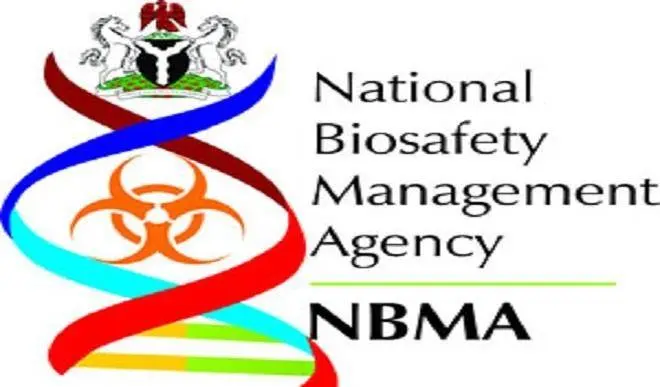By Iyemah David
The National Biosafety Management Agency (NBMA), has expressed its commitment to implement a safety and health security policy and action plan in the country, to make it a more secure nation.
The Director General National Biosafety Management Agency (NBMA), Dr Agnes Yemisi Asagbara, made the commitment on Tuesday in Abuja, at the Inaugural Meeting of the National Advisory Council on Biosecurity (NACB) and the National Technical Working Group on Biosecurity (NTWGB, organised by NBMA, in collaboration with the Africa Health Budget Network (AHBN).
She acknowledged the honour and responsibility of the agency in implementing a safety and security policy and action plan in the country.
Dr Asagbara assured stakeholders and development partners of her commitment to realising the policy and making the country a secure nation.
She emphasised the importance of cooperation, tenacity, and commitment to the advancement of Nigeria in various areas, including security, food security, animal health, and the environment.
Speaking, on the inauguration of two committees, the technical committee, and the advisory committee, she said that they would enhance the goals of the policy.
Expressing optimism, she said that the country would be recognised and appreciated globally for its achievements.
The National Security Adviser (NSA), Malam Nuhu Ribadu, also the Chairman National Biosecurity Advisory Committee, emphasised the significance of national security, particularly concerning the coordination of security matters.
Ribadu, who was represented, by Ms Pamela West, Principal Staff Officer at the ONSA, highlighted the commitment of ONSA to fulfil its responsibilities within the committee, acknowledging the evolving nature of the list of involved donor partners
He, however, expressed gratitude for the opportunity.
The Permanent Secretary, Federal Ministry of Environment and also the chairman National Technical Working Group, (NBTWG), Mr Mahmud Kambarlin underscored the importance of working together to implement and achieve the objectives of the new policy.
Kambarlin, who was represented by the Deputy Director/Head of Environmental Health and Sanitation of the ministry, Mrs. Rita Azuka, announced the first assignment for the committee, urging partners present to organize a training session for members to fully understand the policy’s intricacies.
“With effective collaboration, the group would successfully implement the policy,” he said.
Coordinator of AHBN, Dr Aminu Magashi Garba, acknowledged the commitments made at the 2021 COVID-19 Summit conference, particularly regarding the support and strengthening of the National Biosecurity Management Agency.
“The 2021 COVID-19 Summit that came out with far-reaching recommendations/communique for action. Engaging in the BioSecurity agenda was one of such summit outcomes.
“We are glad that the Advisory Council and TWG are now inaugurated for the BioSecurity Policy and action plan. We sincerely hope development partners will key in and support the government to implement,” he said.
Garba underscored the importance of partners fulfilling promises made at that time and urged them to contribute to the implementation of the biosecurity policy and action plan over the next five years in the country.
He called on partners to understand and support the policy, as well as contribute to capacity-building efforts, underscoring the collaborative effort required for the successful execution of the biosecurity agenda in the country.
Dr Agha Ukpai Agha, Acting Director of the Biosecurity Department, NBMA, said that the issues of Biosecurity cut across various ecosystems in the country and its related activities.
Agha said that hence the need for effective facilitation and collaboration was paramount.




